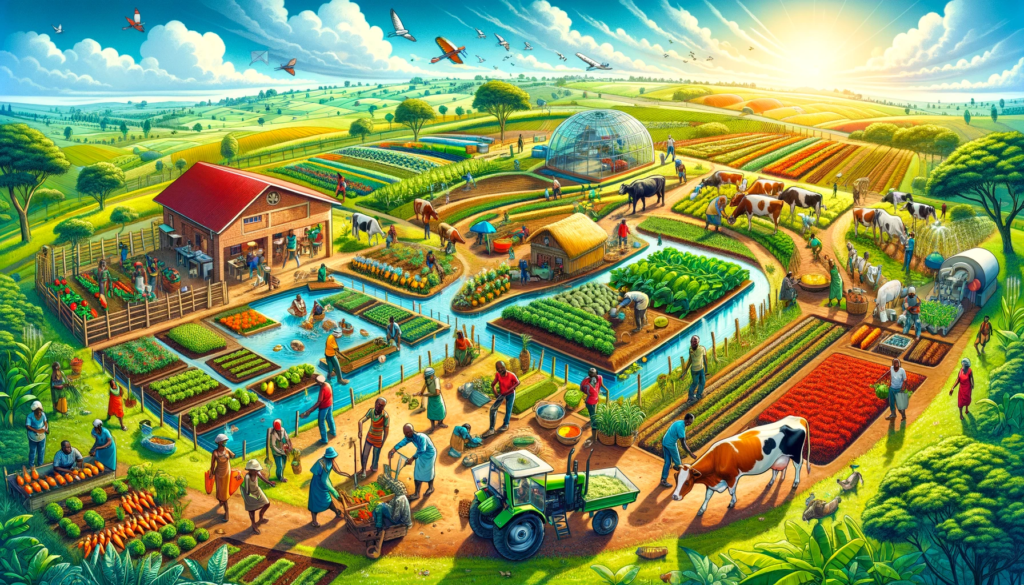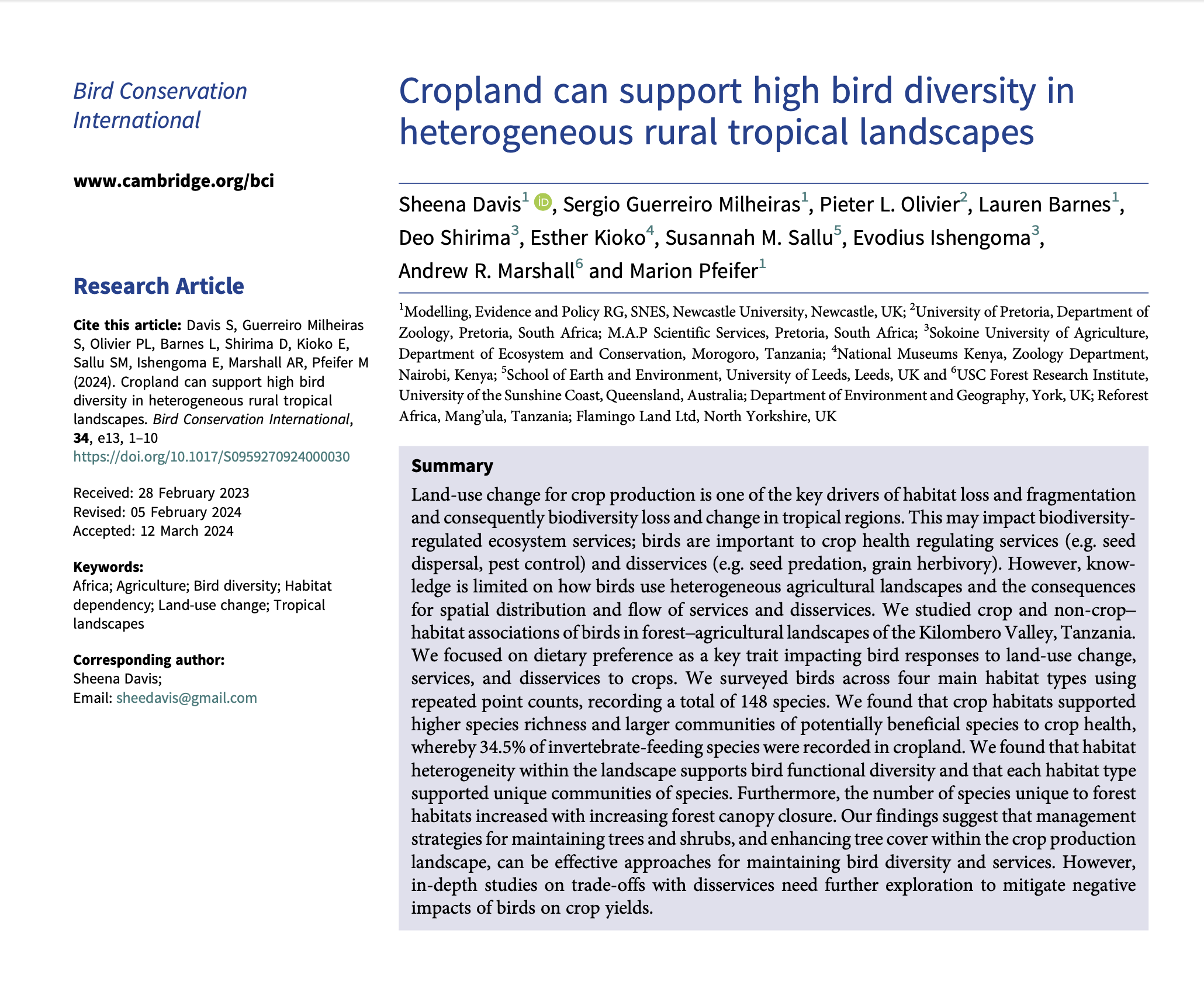Twenty agriculture business ideas you can implement in Africa and scale up
November 12, 2023
By Anthony Muchoki
- Solar-Powered Irrigation Systems
- In many parts of Africa, inconsistent rainfall and drought conditions hamper agricultural productivity. Solar-powered irrigation systems offer a sustainable solution, harnessing abundant solar energy to power water pumps. This technology can ensure a reliable water supply, enabling farmers to grow crops throughout the year, even in dry seasons. The implementation of such systems can significantly increase crop yields and improve food security in the region.
- Mobile Agro-Advisory Services
- With widespread mobile phone usage in Africa, mobile agro-advisory services can provide farmers with essential information directly to their phones. These services could include weather forecasts, pest control advice, and current market prices for crops. This real-time information empowers farmers to make informed decisions, optimize their farming practices, and enhance their income by selling their produce at the best possible prices.
- Aquaponics Farming
- Aquaponics, a system that combines aquaculture (fish farming) and hydroponics (soil-less plant farming), offers a highly efficient and sustainable way to produce food. This method is particularly suitable for areas with limited water resources, as it uses up to 90% less water than traditional farming. Aquaponics systems can be set up in urban or rural areas, providing a source of fresh produce and fish, which are valuable protein sources.
- Drought-Resistant Crop Cultivation
- Developing and cultivating drought-resistant crops is crucial for maintaining agricultural productivity in arid and semi-arid regions of Africa. These crops, such as certain varieties of millet, sorghum, and cowpeas, can thrive in tough conditions with minimal water. Focusing on these crops can help ensure food security and provide a steady income for farmers who face challenging climatic conditions.
- Agro-Tourism Ventures
- Agro-tourism combines agriculture and tourism, offering visitors a chance to experience rural life and learn about local farming practices. This can be particularly appealing in regions with scenic landscapes and unique agricultural practices. Agro-tourism can diversify farmers’ income sources, promote cultural exchange, and foster a greater appreciation for agriculture among tourists.
- Organic Farming Cooperatives
- Establishing organic farming cooperatives can enable farmers to adopt sustainable practices and access lucrative markets for organic products. These cooperatives can provide training, certification assistance, and collective marketing opportunities, making it easier for small-scale farmers to transition to organic farming and reach consumers who are willing to pay a premium for organic produce.
- Seedling Nurseries and Distribution
- Establishing nurseries that produce high-quality, disease-resistant seedlings can significantly improve crop yields. By providing farmers with access to these seedlings, such nurseries play a critical role in enhancing agricultural productivity. Additionally, these businesses can offer advice on best planting practices and crop rotation, further supporting farmers’ success.
- Cold Storage Solutions
- In many parts of Africa, a significant amount of produce is lost post-harvest due to a lack of proper storage facilities. Developing affordable and efficient cold storage solutions can help reduce these losses, ensuring that more of the harvested crops reach the market. This not only improves food security but also increases the income of farmers by reducing waste.
- Agricultural Equipment Leasing Services
- Many small-scale farmers in Africa cannot afford modern farming equipment. Agricultural equipment leasing services can provide these farmers with access to machinery like tractors, harvesters, and irrigation equipment, which can significantly increase their productivity and reduce labor costs. This service can be structured to be affordable and accessible to smallholder farmers.
- Beekeeping and Honey Production
- Beekeeping is a low-cost, sustainable agricultural activity that can provide farmers with an additional income stream through the sale of honey and other bee products. Besides its economic benefits, beekeeping also plays a crucial role in pollination, which is essential for the production of many crops. Honey production can be a lucrative business, especially if marketed as organic or sustainably harvested.
- Value-Added Processing Facilities
- Establishing facilities that process raw agricultural products into value-added goods, such as canned fruits, dried vegetables, or milled grains, can significantly increase the value of farm produce. This not only boosts farmers’ profits but also creates employment opportunities in rural areas. These facilities can also reduce food waste by processing surplus produce that might otherwise spoil.
- Urban Vertical Farming
- With rapid urbanization, urban vertical farming offers a solution to grow food in limited spaces like rooftops or vacant lots. This method uses vertically stacked layers to grow crops, maximizing space efficiency. It can provide city dwellers with fresh, locally grown produce, reducing the environmental impact of transporting food over long distances.
- Agri-FinTech Solutions
- Financial technology tailored for the agricultural sector can provide farmers with access to credit, insurance, and other financial products. These services can help farmers manage risks, invest in improvements, and sustain their operations through difficult periods. Digital platforms can also facilitate direct transactions between farmers and buyers, improving market access and profitability.
- Community-Based Training Centers
- Establishing training centers that provide farmers with education on modern agricultural techniques, business skills, and environmental sustainability can greatly enhance the overall productivity and sustainability of farming communities. These centers can serve as hubs for innovation and knowledge sharing, helping farmers to continuously adapt and improve their practices.
- Herbal Medicine Cultivation
- The cultivation of medicinal plants for local and international markets can be a lucrative niche. As demand for herbal medicines and natural health products grows globally, farmers can diversify their crops to include medicinal herbs. This requires knowledge of specific cultivation techniques and market demands but can offer high returns.
- Livestock Feed Production
- Producing livestock feed locally can reduce the cost of animal husbandry and make it more sustainable. This business can utilize agricultural by-products and local resources to produce high-quality feed, supporting the livestock sector and reducing reliance on imported feeds.
- Eco-Friendly Pest Control Services
- Offering sustainable and environmentally friendly pest control solutions can help farmers protect their crops without resorting to harmful chemicals. This service can include the use of natural predators, biopesticides, and other organic methods, which are becoming increasingly important as consumers demand more sustainably produced food.
- Agro-Waste Recycling
- Turning agricultural waste into valuable products is an excellent way to add value and reduce environmental impact. This could include producing compost for organic farming, generating biogas as a renewable energy source, or creating biochar to improve soil health. Such initiatives can create additional revenue streams for farmers and contribute to a circular economy in agriculture.
- Smart Farming Technologies
- Implementing smart farming technologies like IoT devices, drones, and AI can help farmers optimize their operations. These technologies can provide precise data on soil health, crop conditions, and resource usage, enabling farmers to make more informed decisions and improve efficiency.
- Community Seed Banks
- Community seed banks can preserve local seed varieties, ensuring the availability of seeds adapted to local conditions and promoting agricultural biodiversity. They can also serve as centers for knowledge exchange on traditional farming practices and seed saving techniques, strengthening community resilience.



